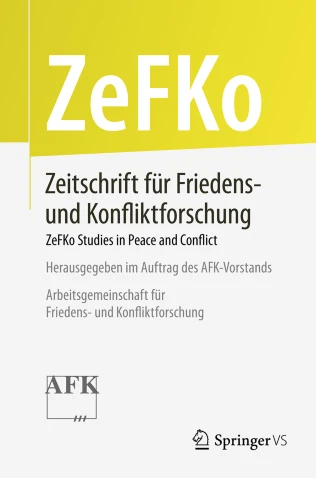The Zeitschrift für Friedens- und Konfliktforschung (Journal of Peace and Conflict Studies) has recently published a special issue titled “Technology and the Transformation of Political Violence,” guest-edited by Thea Riebe and Christian Reuter. This special issue explores how emerging technologies are reshaping the nature of political violence, influencing both the strategies of actors involved in conflicts and the ways in which violence is organized, orchestrated, and legitimized in the digital age.

A key focus of this issue is the increasing role of technology in shaping contemporary conflict dynamics. Autonomous weapon systems, cyber and information warfare, digital surveillance, and online radicalization are just some of the critical aspects examined by the contributing authors. The rapid advancement of artificial intelligence and machine learning has fundamentally changed the landscape of military and security operations, raising ethical and strategic questions about the use of autonomous systems in warfare. At the same time, cyber conflicts and disinformation campaigns have become essential tools in geopolitical struggles, blurring the boundaries between physical and digital battlegrounds.
Beyond traditional security concerns, this special issue also highlights how digital technologies affect political mobilization, protest movements, and state repression. While new technologies provide opportunities for democratic engagement and grassroots activism, they also offer authoritarian regimes new means of surveillance and control. Social media platforms play a dual role in this context, serving as both a space for political organization and a tool for spreading propaganda, hate speech, and extremist ideologies.
The contributions in this volume bring together perspectives from political science, security studies, media research, and ethics to provide a comprehensive analysis of these developments. By fostering an interdisciplinary dialogue, this special issue aims to deepen our understanding of the relationship between technology and political violence and to inform policy debates on how to address the challenges arising from this evolving landscape.
For researchers, policymakers, and practitioners in the fields of international security, peacebuilding, and conflict resolution, this publication offers valuable insights into one of the most pressing issues of our time.
🔗 Read the full special issue here: Springer Link
